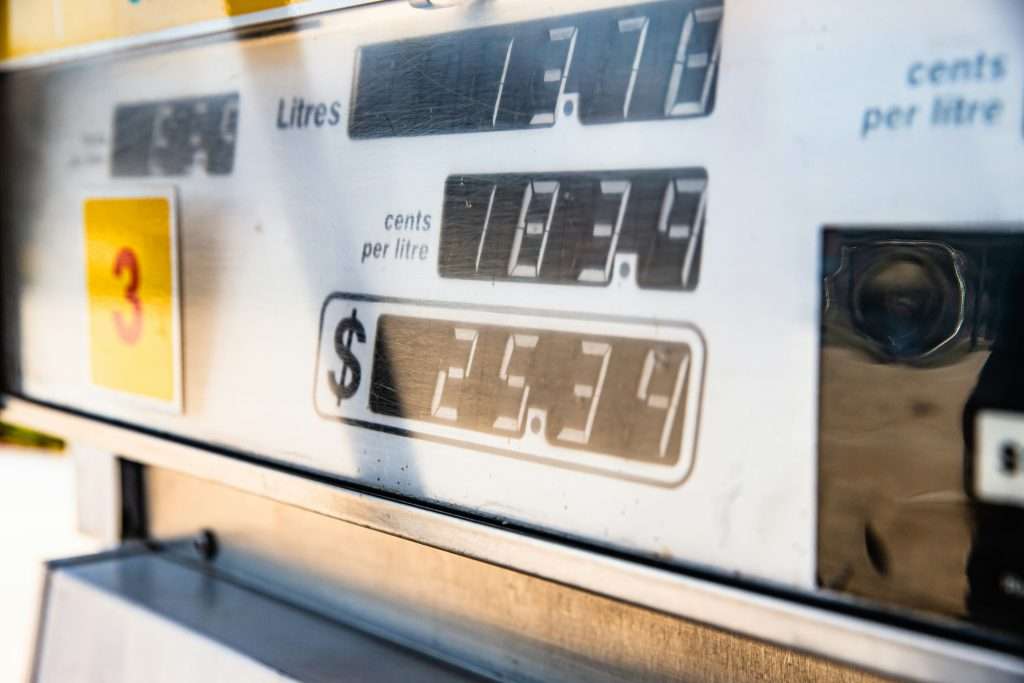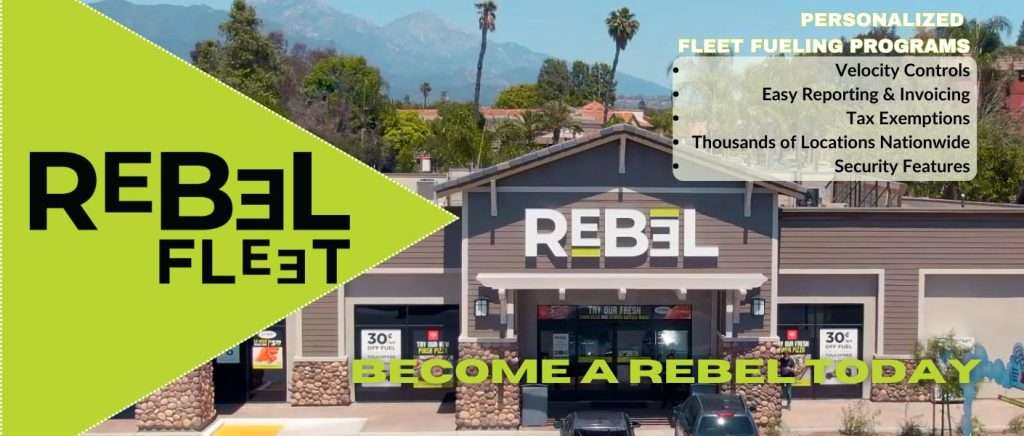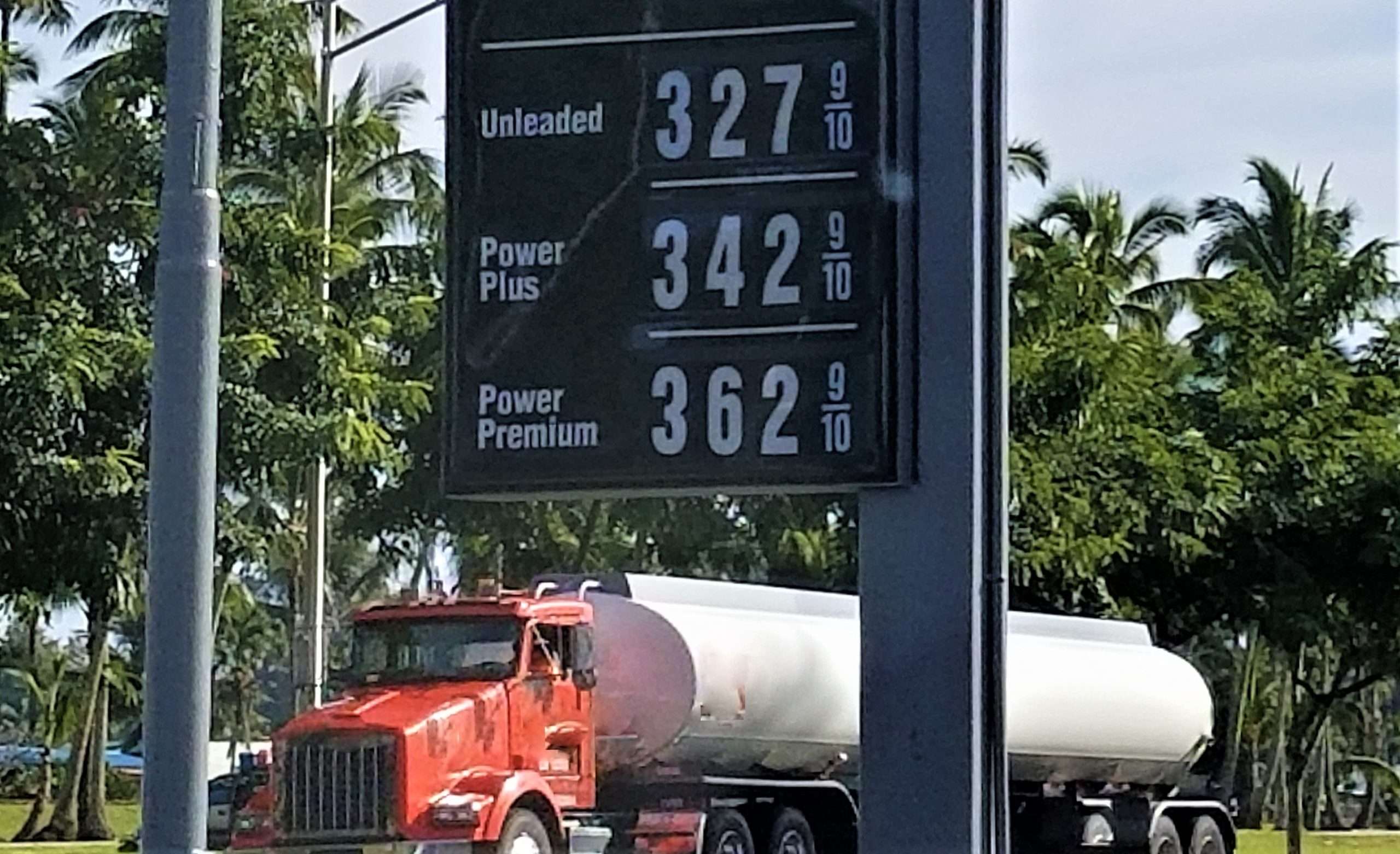Recently, new tariffs imposed on Canadian and Mexican oil imports have sent shockwaves through the U.S. energy market, leading to concerns about higher fuel prices. For fleets across the country, the impact of tariffs could mean tighter margins and increased operational costs. We understand how rising fuel prices and market fluctuations bring cost management to the forefront of every fleet manager’s mind.
That’s why Rebel Fleet is here to help you navigate these challenges and keep your fueling expenses under control. In this blog post, we’ll break down how tariffs on oil imports can influence fuel prices, what fleets can expect moving forward, and how Rebel Fleet’s fuel cards can help you save money and streamline operations during this period of uncertainty.
Table of Contents
What’s Happening with Tariffs and Fuel Prices?
On March 4, 2025, the U.S. government imposed new tariffs on energy imports, specifically a 10% tariff on crude oil from Canada and a 25% tariff on crude oil from Mexico. These tariffs are part of a broader trade policy shift and are expected to have immediate and long-term effects on fuel prices in the U.S.
The U.S. imports about 4.4 million barrels of crude oil daily from Canada, making it a crucial player in our energy supply chain. A 10% tariff on Canadian oil may seem small, but because U.S. refiners rely heavily on this discounted crude, it will result in higher refining costs. Those increased costs will likely be passed along to consumers in the form of higher gas and diesel prices.
The situation is more complicated with Mexico. The U.S. imports around 625,000 barrels per day of Mexican oil, and the 25% tariff on Mexican crude could disrupt supply chains, especially for refineries along the Gulf Coast. In the short term, refiners may absorb some of the costs, but in the long run, the price increases will likely be felt at the pump.
Expected Effects on Fuel Prices
So, what can fleet managers expect? Here’s a quick breakdown:
- Immediate Price Increases: Areas that rely on Canadian oil, like the Northeast, could see fuel prices increase by as much as 20 cents per gallon due to the tariffs.
- Supply Chain Challenges: The increased cost of Mexican oil and the shift to alternative sources could create logistical challenges and lead to further price hikes across the board.
- Market Volatility: Tariffs introduce uncertainty into the market, which means fuel prices could become more unpredictable in the coming months.

What Does This Mean for Your Fleet?
Rising fuel prices can significantly impact a fleet’s bottom line. Fuel costs account for a substantial portion of a fleet’s operating expenses, and when prices climb, it can squeeze your budget. The effects of the tariffs will vary depending on your fleet’s location and the fuel sources it relies on, but all fleets should prepare for some level of price increases. Here’s what you can do.
- Prepare for Increased Operating Costs: As refineries adjust to the new tariffs and supply chains shift, fleet managers will likely see a rise in fuel prices. This means higher transportation costs and potentially higher prices for goods and services. With the market reacting to new tariffs and seasonal fuel transitions, price fluctuations are likely to continue.
- Prioritize Fleet Efficiency: The more fuel-efficient your fleet, the less impact rising fuel prices will have on your overall operating costs. It’s time to optimize your fleet’s efficiency to make every drop of fuel count.
How Rebel Fleet Can Help Your Fleet Save
While we can’t control global tariffs or oil prices, Rebel Fleet can help you manage your fueling costs and budget. Our fleet fuel cards offer a host of benefits designed to help you stay ahead of rising fuel prices, maximize your savings, and improve your fleet’s efficiency.
1. Customized Fueling Solutions
Rebel Fleet offers fleet fuel cards that give you access to over 60,000 fueling stations nationwide. This means you can choose the best fueling locations based on price and convenience, allowing you to avoid overpaying for fuel.
Our fuel cards offer flexibility, allowing you to set purchase limits by gallons or dollars, restrict purchases to fuel-only transactions, and tailor the card controls to your specific needs. You can also choose between the Rebel Commercial Fleet Card or the Rebel Universal Fleet Card, depending on your fleet’s size and requirements.
2. Detailed Data, Reporting, and Controls
With our fuel cards’ detailed reporting and customizable controls, you can track fuel usage in real-time and identify opportunities to reduce fuel consumption. By analyzing your fleet’s data, you can make smarter decisions to minimize fuel waste and optimize efficiency.
Our fuel cards integrate seamlessly with telematics systems to help you monitor driver behavior, route efficiency, and fuel consumption patterns. Armed with this data, you can make adjustments to save on fuel and improve overall performance.
3. Fraud Protection
Our security features, like PIN numbers and transaction alerts, help protect your fleet cards against unauthorized activity. Customizable card controls also make it easy to ensure your cards are only used at approved locations for certain purchases or amounts. You can fuel with peace of mind knowing that your business is secure.
4. 24/7 Customer Support
We understand that fleet management doesn’t stop at 5 PM. That’s why our customer support team is available 24/7 to help you with any issues that arise. Whether you need assistance with fueling card transactions or optimizing your fueling strategy, we’re always here to help.
Tips for Managing Rising Fuel Prices
Aside from using Rebel Fleet’s fuel cards, here are a few tips for managing rising fuel prices:
- Regular Maintenance: Ensure that your vehicles are well-maintained and operating at peak efficiency. Proper tire inflation, regular oil changes, and fuel filter replacements can all help improve fuel economy.
- Route Optimization: Use telematics and route optimization software to reduce unnecessary miles and ensure drivers take the most efficient routes.
- Fuel-Efficient Driving: Encourage drivers to adopt fuel-efficient driving habits, such as avoiding idling, driving at consistent speeds, and reducing sudden acceleration and braking.
- Bulk Fuel Purchases: If you have the capacity, consider purchasing fuel in bulk when prices are lower to lock in savings before prices rise further.

Stay Ahead with Rebel Fleet
While new tariffs on oil imports may introduce some uncertainty in the coming months, fleet managers who take a proactive approach to fuel efficiency and leverage the right tools can mitigate the financial impact. At Rebel Fleet, we’re committed to helping your fleet navigate these challenges. Our fleet fuel cards are designed to provide the insights, control, and support you need to keep your costs down and your fleet running smoothly.
If you’re ready to start saving on fuel, contact us today and discover how Rebel Fleet can help you stay ahead of rising fuel prices.

